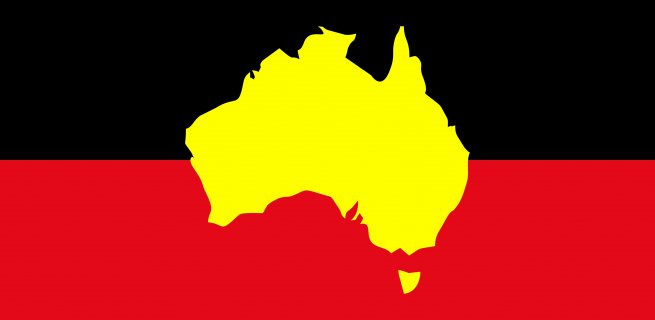On February 2 of this year, the Federal Court ruled that the largest native title settlement in Australian history was void. The Noongar native title settlement was worth $1.3 billion dollars. The court’s decision may have widespread implications for both past and future agreements.
The settlement between the Western Australian government and the Noongar traditional owners was comprised of six Indigenous land use agreements (ILUAs). An ILUA is an agreement between a native title group and other parties over the use of land and waters.
Under the Noongar native title agreement, the Indigenous owners were to surrender their native title rights over an area of 200,000 square kilometres of the state’s south west. This area covered from Jurien Bay north of Perth, to Ravensthorpe in the Goldfields-Esperance region.
The signing of the settlement
The deal was established over a five year period and was signed in July 2015. The South West Aboriginal Land and Sea Council (SWALSC) represented six claimant groups during the negotiations.
In exchange for surrendering their native title rights, the 40,000 people of the Noongar nation were to receive a benefits package that included annual payments of $50 million into a future fund over a twelve year period, as well as 320,000 hectares of land that was to be handed over to them.
At the time the agreement was signed, the SWALSC said it was confident there would be no successful objections to the agreement.
The Federal Court case
However, four of the selected representatives – or named applicants – of the different language groups involved in the deal challenged the agreement, as they never signed it.
They took the WA government, along with the Native Title Registrar and the SWALSC to the Federal Court in a bid to call a halt to the settlement.
And the court ruled in their favour, as four of the ILUAs were found to be invalid.
It was ruled that the agreements of the Ballardong people, the Wagyl Kaip and Southern Noongar peoples, the Whadjuk people and the South West Boojarah people could not be registered under section 24CA of the 1993 Native Title Act, as not all claimants had signed.
Mingli Wanjurri McGlade, Mervyn Eades, Naomi Smith and Margaret Culbong were the four claimants that took the case to court. They feared that the agreement would have permanently stripped the Noongar people of their native title rights.
The response from the WA government
Western Australian premier Colin Barnett said he was disappointed with the court’s decision. But he vowed the agreement would go ahead.
The premier outlined that the settlement includes “employment opportunities, and gives Aboriginal people a real opportunity for self-determination, and future opportunities in terms of jobs.”
According to Barnett, there’s only “a very small number of Aboriginal people in the area who object to any settlement of native title.” He said these people were “frustrating it through the courts,” but as the deal was signed it would go ahead.
It’s expected that the WA government will appeal the matter in the High Court.
A Noongar activist speaks out
The Noongar native title agreement caused a lot of controversy during its negotiation. The Nyoongar Tent Embassy was set up at Matagarup to protest the settlement. The camp was repeatedly raided by police and the local council in 2015.
Marianne MacKay was one of the organisers of the tent embassy. The Yoorgabilya woman from the Noongar nation told Sydney Criminal Lawyers® that she supports the Federal Court’s decision, as she believes the settlement process was flawed from the beginning.
“Our people don’t have the capacity or the legal knowledge to understand an ILUA, so therefore they can’t properly consent to it,” MacKay explained and added that contracts were invalid “unless there is full consent.”
Ms Mackay makes it clear the majority of Noongar people were actually against the agreement. “Colin Barnett keeps saying a small group of frustrated people – well it’s a small group of frustrated people that voted ‘yes’ – not us mob that voted ‘no,’” she said.
The long-time Indigenous rights activist said that the SWALSC paid no attention to the concerns of elders. And she explained that she couldn’t understand how the local people that did sign the agreement could do so, when their cultural obligation is to “fight for country.”
The implications of the Federal Court ruling
The Federal Court case – McGlade v the Native Title Registrar – is expected to have far-reaching consequences for past and future cases, as the court’s ruling found that the precedent set by a prior native title case was incorrect.
In 2010, the case QGC v Bygrave went before the Federal Court to determine whether an ILUA was invalid because one of the claimants refused to sign. But a single-judge decision found that it was not necessary for all native title claimants to sign an ILUA.
Justice Reeves found that the validity of a native title settlement was more about the meeting, than whether only seven of the eight claimants actually signed the agreement.
As WA commercial litigant and native title specialist Marshall McKenna told the National Indigenous Times, in his consideration, the 2010 decision was flawed. He outlined that if it is all about the meeting, then no one really has to sign and therefore there are problems with the “logic of that decision.”
The current Federal Court decision on the Noongar native title settlement might not only affect the decisions made on future settlements, but it could also impact past agreements, where an ILUA has been established, but hasn’t been signed by all claimants.
However, rather than a native title settlement agreement and Federal Court decisions, Marianne MacKay said what the Noongar people actually want is “to move forward into the future walking together in unity,” but on their own terms with their land in their control.











